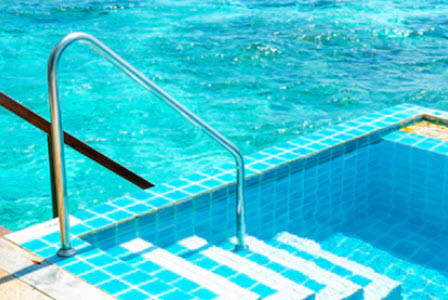Despite the best efforts of lawmakers, Florida is still Ground Zero when it comes to child swimming pool drownings. Every yes, the equivalent of three or four preschool classes full of children fatally drown in Florida in swimming pools. Even if the victim survives, these children often suffer serious and permanent injuries that affect them for the rest of their lives.
Laws are basically meaningless unless they are enforced. Police officers enforce criminal laws, government inspectors enforce public health laws, and Brandon drowning attorneys enforce swimming pool safety laws.
So, we file legal claims not just to collect financial compensation, although the families sorely need this money to carry on. We pursue these claims so that pool owners will think twice before they cut corners because they believe they will not get caught. These legal claims usually rely on one of two theories.
Ordinary Negligence
These claims begin with proper classification. Florida law divides property guests, like paid attendees at a hotel swimming pool or guests at a backyard swimming party, into three categories:
- Invitee: Most property negligence victims are invitees. These individuals respond to the owner’s direct or indirect invitation (e. a “come on over” invitation or an “open for business” sign). And, their presence benefits the owner in some way. That benefit could be money from a transaction or the benefit of social interaction.
- Licensee: These individuals have permission to be on the land, but they do not create an actual or potential benefit. The guest of a hotel guest is a licensee as far as the hotel owner is concerned.
- Trespasser: Typically, a trespasser simply means no permission and no benefit. A party crasher might be a trespasser. Then again, this person might also be a licensee.
The duty of care varies at each level. If the victim was an invitee, the owner had a duty of reasonable care. This duty includes a responsibility to frequently inspect the property and make sure it is safe. If the victim was a licensee, the owner only has a duty to warn about latent (hidden) defects. That could be a defective swimming pool drain. If the victim was a trespasser, the owner usually owes no duty. The attractive nuisance rule, which applies to child trespassers in swimming pools, is one of the major exceptions to this rule.
In court, the victim/plaintiff must establish a lack of care by a preponderance of the evidence (more likely than not) and also refute any Brandon insurance company defenses. If the pool had a “No Lifeguard On Duty” or similar sign, the assumption of the risk defense may apply. This defense excuses liability if the victim/plaintiff:
- Voluntarily assumed
- A known risk.
So, in the case of a sign, the sign must be clearly visible. Additionally, the victim must be able to read it and understand what it means. This defense fails if the insurance company cannot conclusively prove all these things.
Negligence Per Se
One of the aforementioned swimming pool laws is the Residential Swimming Pool Safety Act. It contains a number of pool safety provisions. For example, the pool fence must have a gate with a self-latching lock which operates from the pool side.
If the swimming pool did not comply with the RSPSA, or a similar law regarding commercial pool safety, and that noncompliance substantially caused the victim/plaintiff’s injuries, the owner may be liable for damages as a matter of law.
Lack of knowledge is one of the most prominent insurance company defenses in negligence per se cases. If the owner did not know about the defect, the owner is not responsible for damages. Victim/plaintiffs may use either direct or circumstantial evidence of actual or constructive knowledge (should have known) to establish this point in court.
Reach Out to Thorough Attorneys
Swimming pools are fun and dangerous. For a free consultation with an experienced drowning lawyer in Brandon, contact Reed & Reed, Attorneys at Law. We have four area offices (St. Petersburg, Lakeland, Tampa, and Clearwater).
Resource:
floridahealth.gov/statistics-and-data/florida-injury-surveillance-system/_documents/data-fact-sheets/drowning-2012.pdf
https://needreed.com/debunking-the-top-three-swimming-pool-drowning-defenses/

